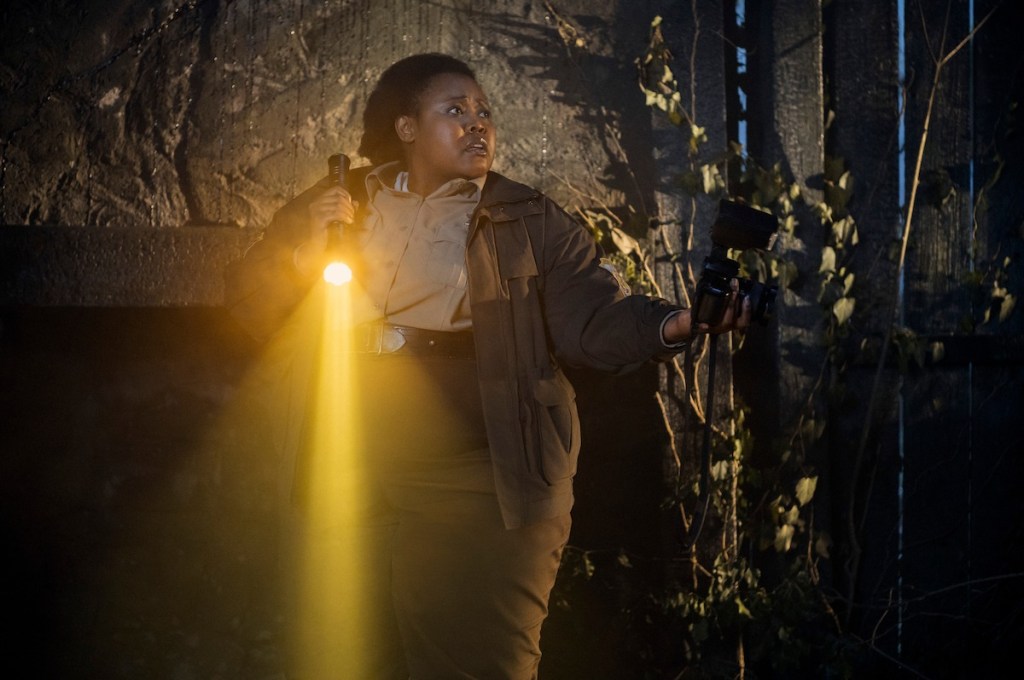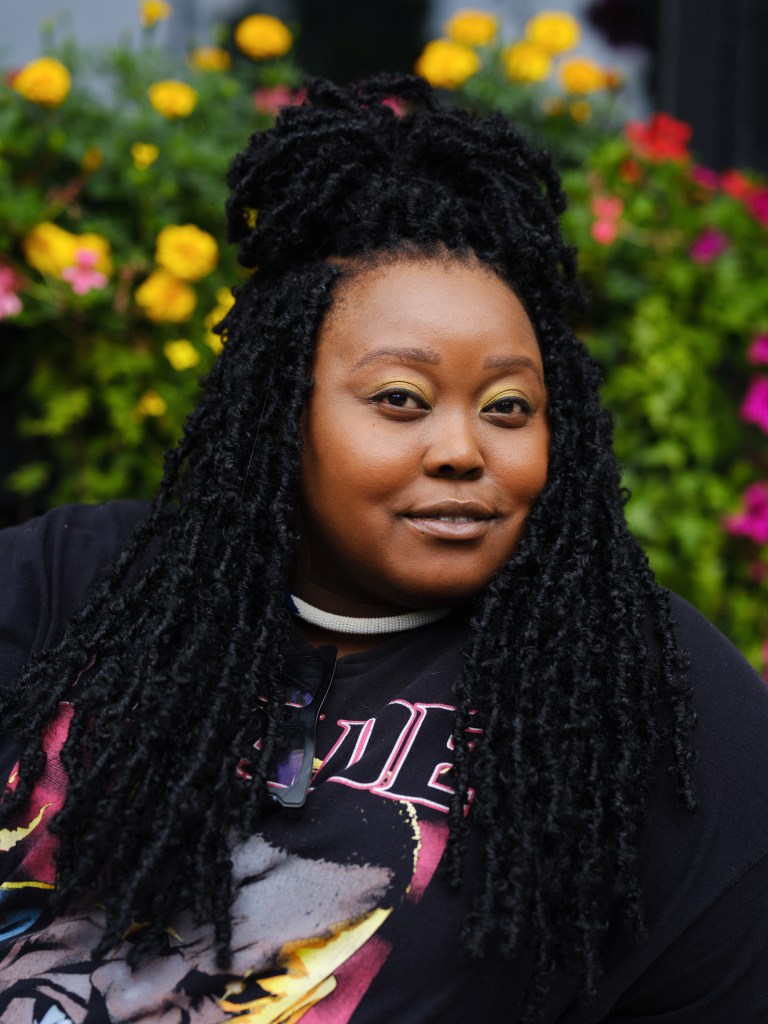“Buckle up,” is the advice Wednesday star Luyanda Unati Lewis-Nyawo has when it comes to the season two, part two.
The second season of the hit series has arrived to great reviews and decent ratings on Rotten Tomatoes.
We’re already itching for the second half, and while it’ll come around soon enough, it’d also be great if it landed on Netflix, like, now. But we have it on good authority from Lewis-Nyawo that there’s plenty “more mayhem” to look forward to.
In it, Jenna Ortega returns as the titular character as yet another mystery unravels at Nevermore Academy. Alongside her are the rest of the Addams clan (Catherine Zeta-Jones as Morticia, Luis Guzmán as Gomez, Isaac Ordonez as Pugsley and Victor Dorobantu as Thing) as well as her roommate Enid (Emma Myers), Bianca (Joy Sunday), and the rest of Nevermore.

Lewis-Nyawo returns as Ritchie Santiago, though in a change from season one, Santiago is now the Sheriff of Jericho having taken over from Donovan Galpin (Jamie McShane) whose son, Tyler (Hunter Doohan) was found to also be Hyde, the monster responsible for several deaths in season one.
Sitting down to chat to PinkNews the day after Wednesday season two, part one dropped, Lewis-Nyawo, who is non-binary, shares that while they don’t look at reviews, they’ve already had the most important review of all. “My mum is very proud,” they beam. “Her exact words this morning were ‘How was it received by the public? I, for one, was impressed and entertained’.” Lewis-Nyawo is justifiably chuffed.
Aside from a promotion, Santiago represents a change when it comes to Normie-Outcast relations. “She’s really stepped into her own, making decisions that will keep everybody in Jericho safe,” Lewis-Nyawo says. “Santiago’s also not adverse to working with Wednesday and tries to reach out to with varying degrees of success. She’s definitely trying to make sure that she can keep the community safe, whether they’re Normies or Outcasts.”

Santiago is also free of Galpin’s “traumatic” history with Outcasts. Santiago’s approach is instead influenced by being Black, according to Lewis-Nyawo, meaning the character can empathise with moving through the world differently to other people.
When I ask whether Lewis-Nyawo’s queerness also played into their characterisation they reply in the affirmative. They continue, “Because I can just relate, right? Outcast is a facsimile for queer, trans, black, so many marginalised identities. I couldn’t separate that from the work. I think Santiago has a soft spot for kids and isn’t going to ‘other’ them.”
As for what we can expect in the second half of the new season, I’m told, simply: “Buckle up.”
I prod for more. “I can tease more mayhem. I can tease a Wednesday who’s going to have to swallow some difficult pills. She runs into everything full steam without thinking. And that’s one of the amazing things about the character. But there’s definitely lessons to be learned. Because [minor spoiler warning for the end of Wednesday season two, part one] she has had herself yeeted out of a window.”
Stepping away from the character, Lewis-Nyawo found the Wednesday set “incredibly collaborative.” They never had an issue when it came to pronouns or feeling unwelcome, which is to be celebrated as it’s not always a given for queer people in any situation.
But when it comes to what it feels like being on the set of a queer production compared to something like Wednesday, which isn’t explicitly queer, Lewis-Nyawo speaks of a “palpable” difference and “magical” quality when on the former.
“When you’ve got queer folk at the helm of a project it’s so refreshing to just walk into a space and you don’t have to do that initial dance of ‘these are my pronouns.’ There’s a level of care that’s very difficult to create on a massive multi-million dollar set. It’s not impossible but it’s tough.”
But they maintain, “productions are trying,” whilst also recognising, “there’s more to be done.”
Everyone, whether they admit it to not, has an unconscious bias or a blind spot. “It’s about nipping them in the bud,” Lewis-Nyawo explains. “And knowing there are organisations that want to train and facilitate safer sets for everyone.”
They mention Trans On Screen, as an example of this, helping productions accommodate trans and gender non-conforming people. It’s a small, but easy step to make that Lewis-Nyawo argues would benefit everyone, not just a particular community. “There’s so much fumbling in the dark and people don’t quite know how to talk about things,” they say.
As for their own projects, away from Wednesday, Lewis-Nyawo is working on a piece of theatre exploring queerness in African antiquity. They elaborate that they want explore how what we’d call queer identities in 2025 “are ancient and have been with us since time immemorial,” but were “eroded by colonial thinking.”
They also tease an “angry” but “really gay” horror about late stage capitalism in the pipeline. Queerness will be a recurring theme in their work they share. It’s “horror about people trying to bring down systems that really want to keep them under foot but with an empowering note.” We’ll be booking tickets.
Wednesday season two, part one is streaming now.
